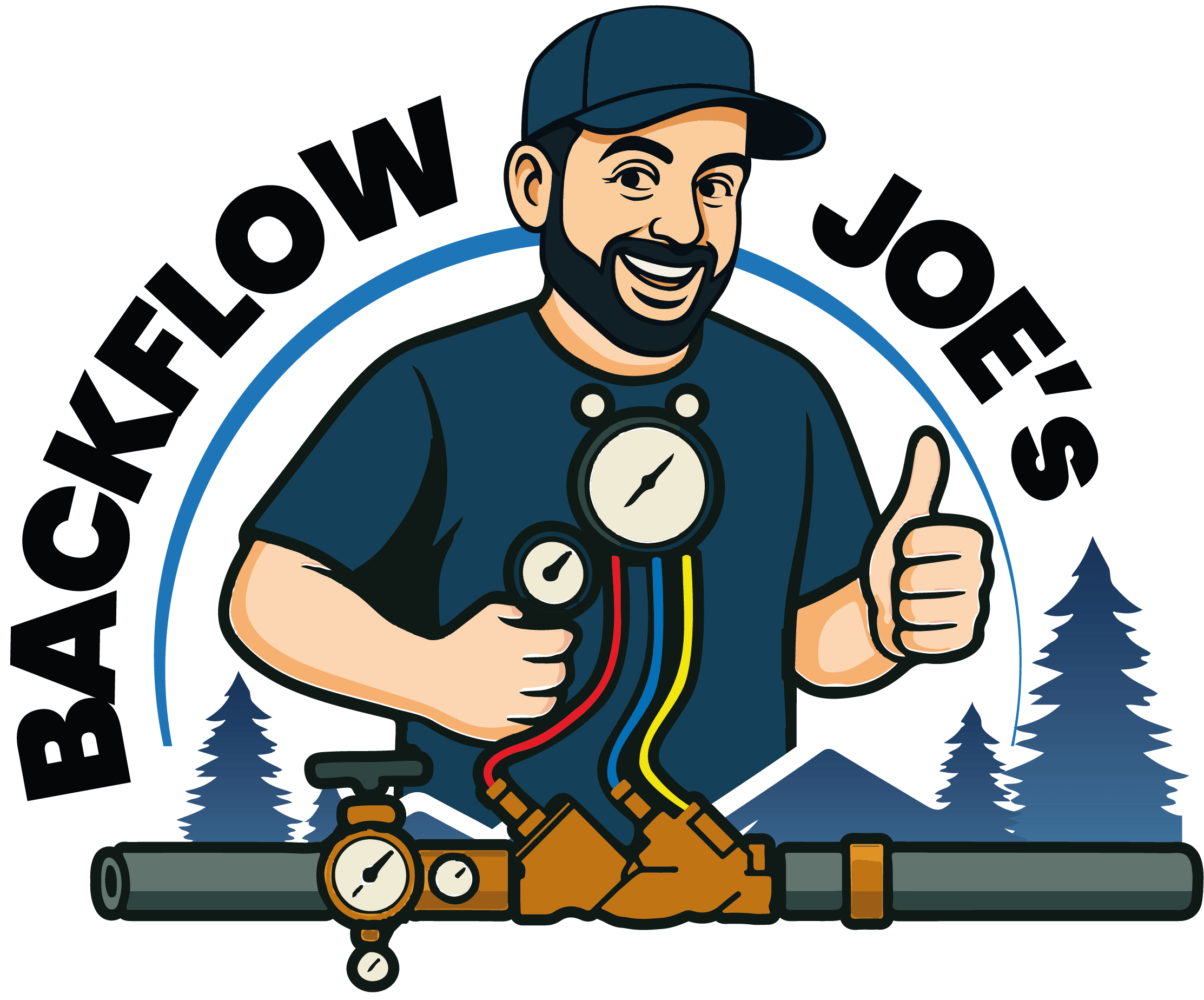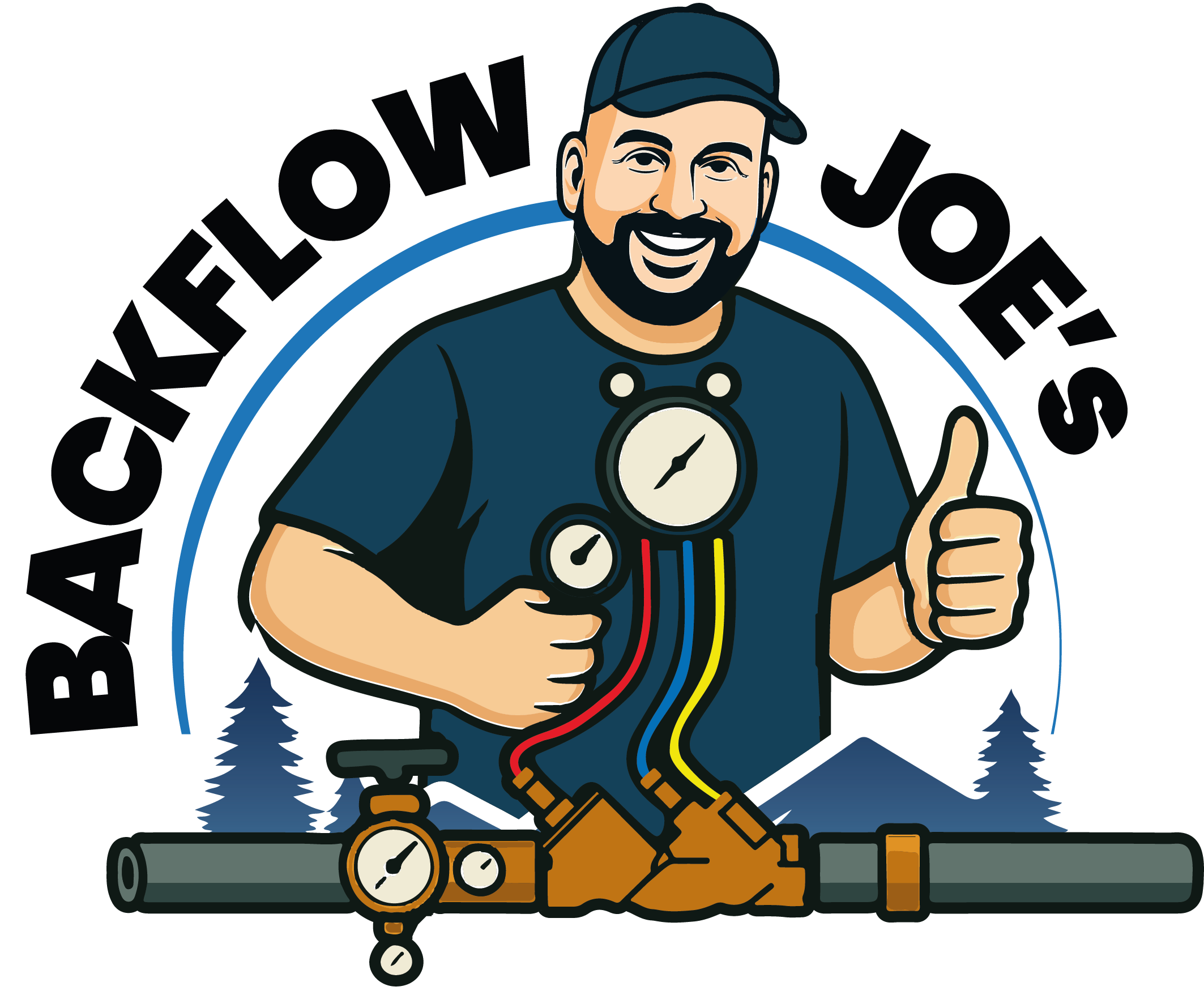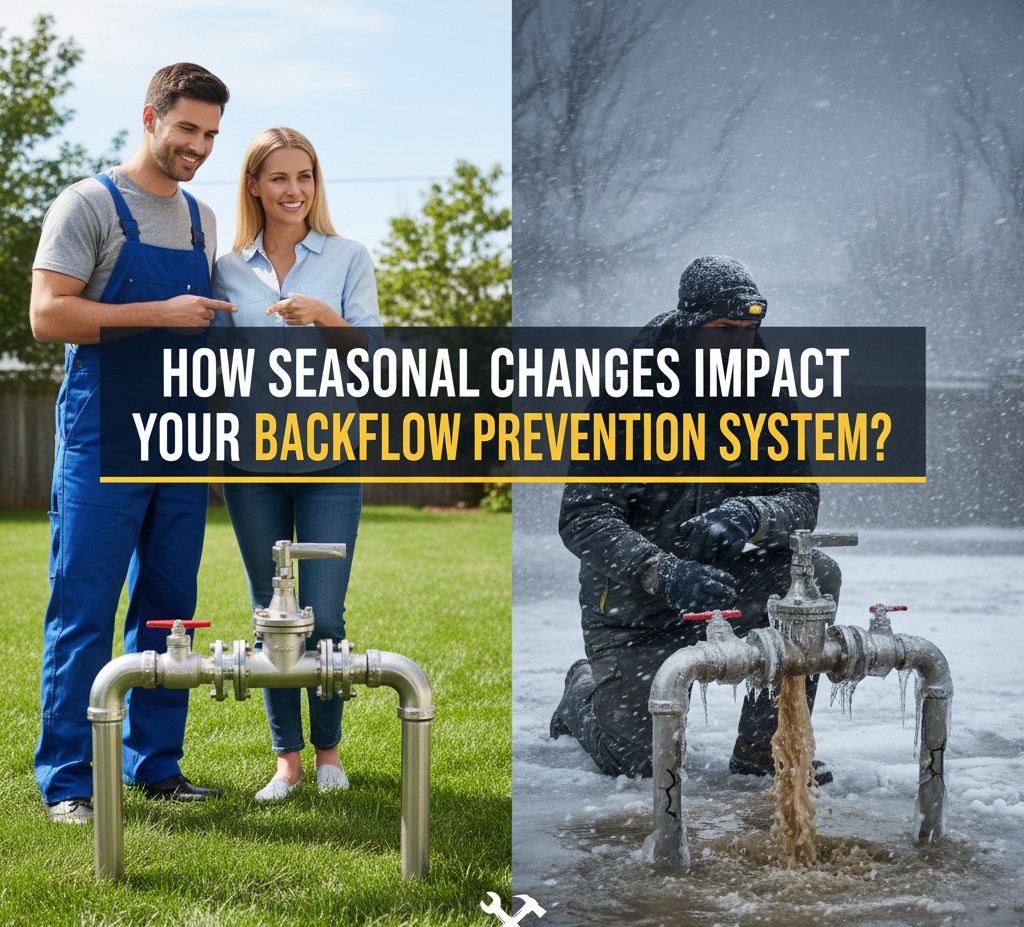Seasonal backflow system maintenance, backflow prevention seasonal tips, backflow device inspection, prevent backflow issues in winter, irrigation backflow maintenance, plumbing system seasonal changes, backflow preventer testing services, year-round backflow protection
Introduction
Ok so here me out on this one. If you have a backflow prevention system hooked into your plumbing then you probably don’t think about it much right?
And most people don’t because it’s one of those out of sight wonders and out of mind things until one day the water just starts to taste a bit weird or the city’s law enforcers send a red notice and suddenly it’s a world on fire situation.
But what plain old folks don’t realize is that the seasons and the weather shifting from hot to cold, dry to wet all of that messes with these devices more than you would expect.
A backflow prevention system isn’t complicated at its core. In fact it is basically there to stop water that’s been used or mixed with fertilizer, dirt or worse from flowing back into the clean drinking supply.
And yeah it is a simple job but if it fails well then you don’t want to be the one drinking that glass of water.
And that is where seasonal backflow system maintenance comes in to the rescue where the pesky weather has a way of exposing every weak spot and backflow devices are the ones to take the first hit.
Spring Wakes Everything Up
Spring’s tricky. Pipes and valves are coming out of hibernation after a long freeze. If there was even a little water left inside the backflow preventer before winter hit, it might’ve frozen, expanded, and cracked something you can’t see until you turn it back on.
I’ve seen homeowners crank on their irrigation systems in April, hear a hiss, and realize half the water’s spilling into the dirt because the preventer’s housing split in the cold.
That’s why early backflow device inspection is worth its weight. You catch the crack now, not in July when you’re running sprinklers every day.
Spring is also when people forget they need backflow preventer testing services before the city deadline and that is because a quick and simple check at the start of the season can keep you compliant with zero headaches later on.
Summer Pushes the System Hard
Summer is the event of the irrigation season. Sprinklers, hoses, pool fills and your backflow preventer are stopping chemicals, fertilizers and whatever else is sitting on the grass from sneaking into your drinking water. And here’s the thing the hotter and drier it is the harder that system works.
Irrigation lines run nearly every day in a heatwave. That’s when seals dry out, valves wear down and little leaks show up. And I personally have seen more than one family lose water pressure in the middle of a barbecue because the preventer finally gave out.
Regular irrigation backflow maintenance during the summer keeps that from happening.
If you are not sure what to look for here’s a simple trick for you just walk by your preventer after the sprinklers run.
Hear a rattle? No ok Notice water dripping around the valve? If yes then that is your warning sign. So make sure to add that to your list of backflow prevention seasonal tips and deal with it before it gets worse.
Fall Sneaks In the Problems
Fall doesn’t get enough attention. Everyone’s busy with gutters, leaves, and shutting down pools.
But falling leaves and debris around your yard aren’t just an eyesore no sir in fact they clog drains and pile up around your backflow device.
And then that buildup puts pressure on connections and can trap moisture. Once that freezes well you have got a real big problem waiting for winter.
So this is where plumbing system seasonal changes matter. If you let leaves smother the area around your device then you are begging for hidden blockages.
I always tell folks that please clear the leaves, flush the irrigation lines and get one last backflow device inspection before the deep freeze. It’s cheap insurance compared to replacing the whole setup later.
Winter Is the Real Test
Winter is when backflow systems face their biggest challenge. Water freezes, expands and doesn’t care about your budget.
A preventer with just a teaspoon of leftover water inside can crack wide open. And if you don’t notice until spring that’s months of slow leaks or a device that’s dead on arrival.
The smartest move is to drain it, insulate it and shut off any line you don’t absolutely need.
For homes that must run all year round water like some businesses then for those fine people there are freeze resistant devices but even they need care. Skipping winter prep is the fastest way to ruin a system and your wallet.
This is the season where it is an either make or break game so if you want to prevent backflow issues in winter.
And once it’s cracked then there’s no patch job. Good luck because you are buying new.
Why Does It All Matter?
People ask me Why should I mess with this every season thingy? Simple it is clean water. If your system fails you could end up with pesticides or bacteria backing up into what comes out of your tap.
It’s not just about replacing a part it’s about health.
And that is why year round backflow protection matters because it is a quick look in spring, some TLC in summer, a real smooth clean up in fall and a proper shut down in winter.
And trust me that rhythm is gonna save you money keep you compliant and most importantly keep your water safe and sound.
Call in the Pros Before Trouble Starts
Look you can keep an eye on your system but at the end of the day you are not expected to be the expert.
And that is where a crew like Backflow Joe’s comes in to save the day. They have been at this for decades like handling backflow preventer testing services, inspections and repairs you name it.
They know exactly how the seasons in New York wear on these systems and they spot issues before they turn into emergencies.
If it’s been more than a year since your last inspection or if you have never had one then now’s the time.
Don’t wait for the city to send you a letter or for a leak to show up in January. Protect your home, protect your water and make it one less thing on your to-do list.
Call Backflow Joe’s at 845-590-6771 or visit BackflowJoes.com to schedule a seasonal inspection today because just one visit from them is gonna save you a lot of stress later.






